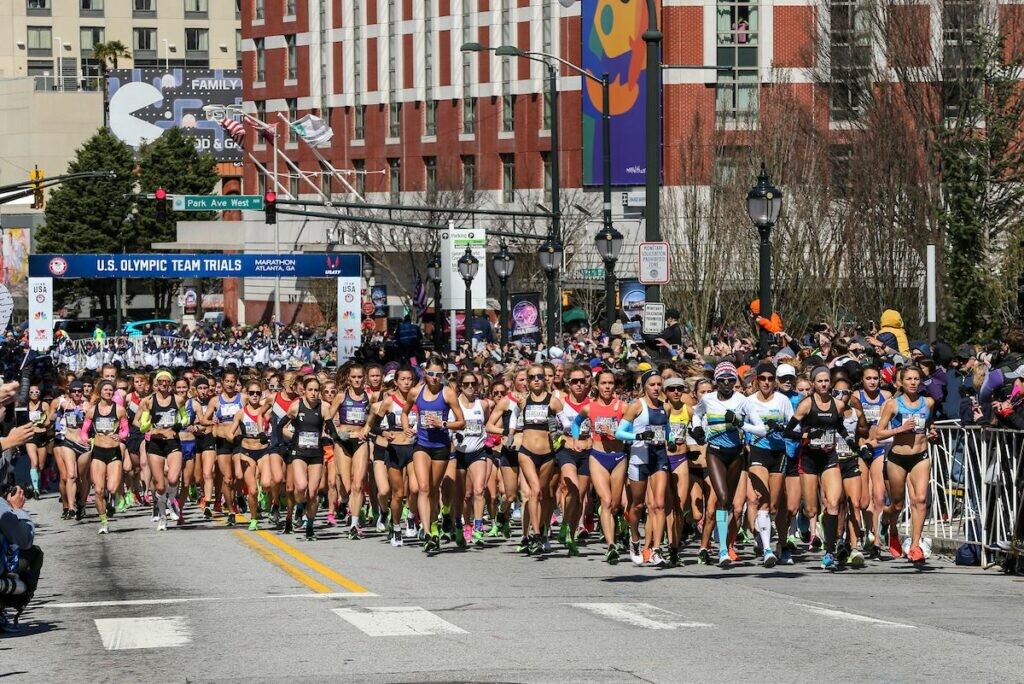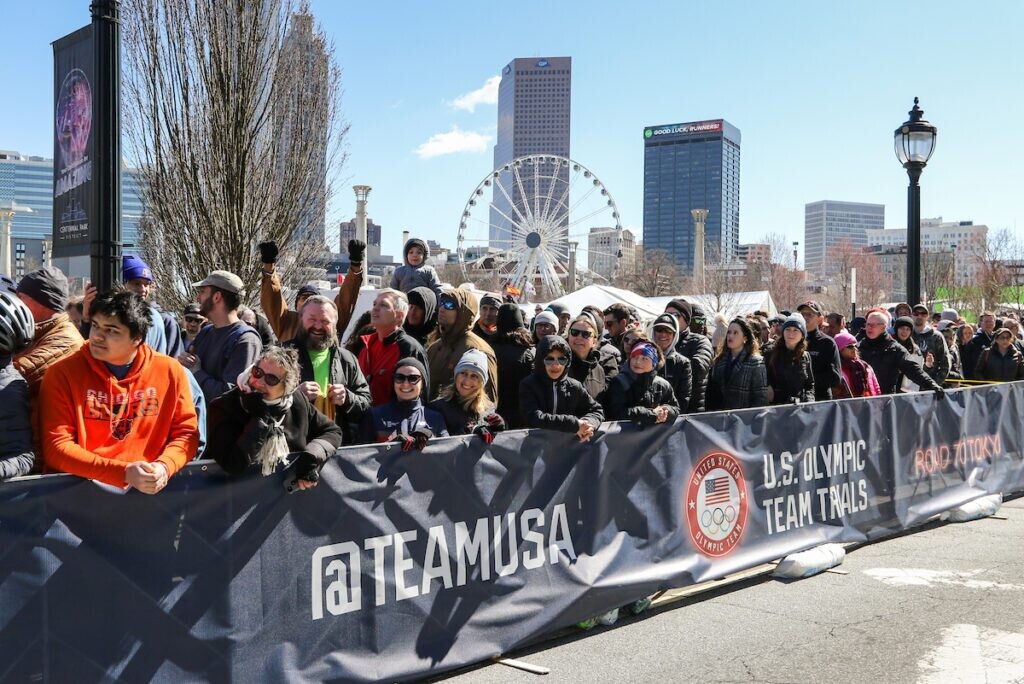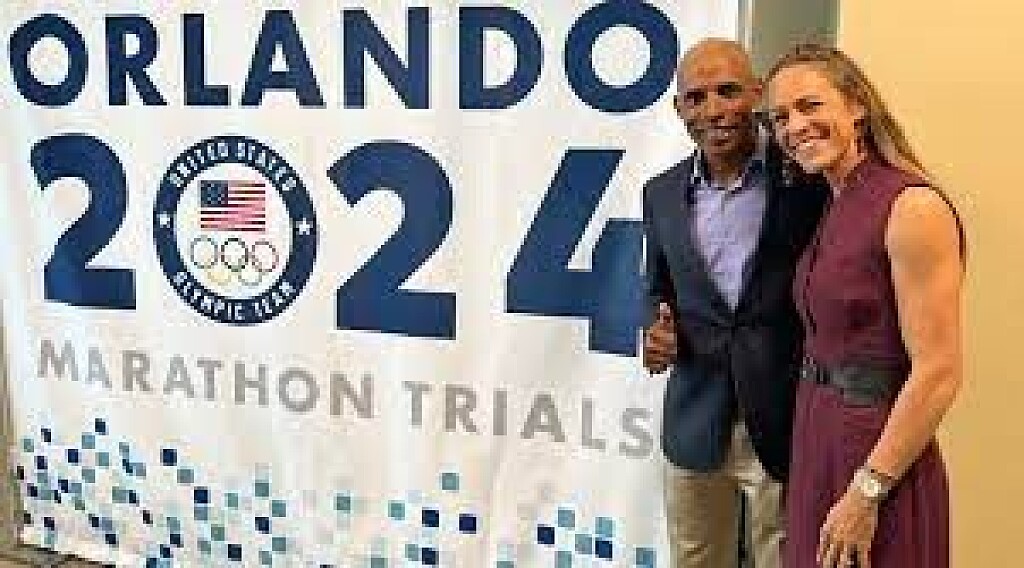Running News Daily
Running News Daily is edited by Bob Anderson. Send your news items to bob@mybestruns.com Advertising opportunities available. Train the Kenyan Way at KATA Kenya and Portugal owned and operated by Bob Anderson. Be sure to catch our movie A Long Run the movie KATA Running Camps and KATA Potato Farms - 31 now open in Kenya! https://kata.ke/
Index to Daily Posts · Sign Up For Updates · Run The World Feed
2024 U.S. Olympic Marathon Trials to start at 12 noon
USA Track and Field (USATF) caused a stir on social media on Tuesday after announcing in an email addressed to athletes that the 2024 Olympic Marathon Trials would begin at 12 noon, due to broadcasting rights. The marathon trials are scheduled to take place in Orlando, Fla., on Feb. 3, 2024.
The late start time has already caused worry for many coaches and athletes due to the potential for high temperatures. In February, the average temperatures in Orlando range from a low of 13 C to a high of 23 C, but in recent years, it has not been uncommon for temperatures to soar to 30 C–which would be detrimental to performance and potentially unsafe for elite marathoners.
According to Runners World, the email sent to athletes mentions that the Local Organizing Committee (LOC) in Orlando has extensive experience in planning and executing high-level events and has contingencies in place for any potential challenges, including weather-related ones.

The decision to set the start time at noon is believed to be influenced by executives at NBC, the network broadcasting the event. The email highlights that the race will be televised live on NBC for three hours, providing coverage of the men’s and women’s runners and races.
The Paris Olympic marathon, which is also expected to be warm, is scheduled for Aug. 10–the middle of summer in the French capital. But both the men’s and women’s races are set to begin at 8 a.m. local time. This disparity in start times has added to the concerns raised by the late start for the U.S. Trials in Orlando.

The U.S. Olympic Marathon Trials serves as the selection race for the men’s and women’s Olympic teams that will compete at the Summer Games in Paris. The top three finishers who also meet World Athletics’ qualifying standards will go on to represent Team USA at the Olympics.
Some athletes and coaches have expressed concern, while others seem to be looking forward to it. 2018 Boston Marathon champion Des Linden tweeted: “Warmer temps should slightly minimize the pace of super shoes and reward smarter racing. Count me in!”
U.S. ultrarunner Camille Herron said “We are seven months out from the Olympic Marathon Trials. No excuses to not be prepared for a potentially hot day in Florida.”
Renowned U.S. marathon coach Kevin Hanson, who currently has 13 athletes (eight women and five men) qualified for the U.S. Trials, stressed his disappointment that athletes’ health is not taken into consideration. “There is no amount of TV coverage that is worth the health of our athletes,” Hanson tweeted.
This isn’t the first time USATF has faced criticism for its handling of extreme heat during events. At the 2021 Olympic Track and Field Trials in Eugene, Ore., where temperatures were forecasted to reach highs of 40 C, several events were rescheduled for safety. However, the heptathlon was not, and athlete Taliyah Brooks collapsed on the track due to the heat and later filed a lawsuit against USATF.
In the 2016 Olympic Marathon Trials in Los Angeles, which began at 9 a.m., some athletes struggled on an unusually warm day, with temperatures reaching the mid-70s Fahrenheit. Shalane Flanagan, who placed third in 2:29:19, collapsed at the finish line, and the organizing committee and USATF later faced criticism for not providing adequate water on the course for the athletes.
by Marley Dickinson
Login to leave a comment
2028 US Olympic Trials Marathon
Most countries around the world use a selection committee to choose their Olympic Team Members, but not the USA. Prior to 1968, a series of races were used to select the USA Olympic Marathon team, but beginning in 1968 the format was changed to a single race on a single day with the top three finishers selected to be part...
more...




